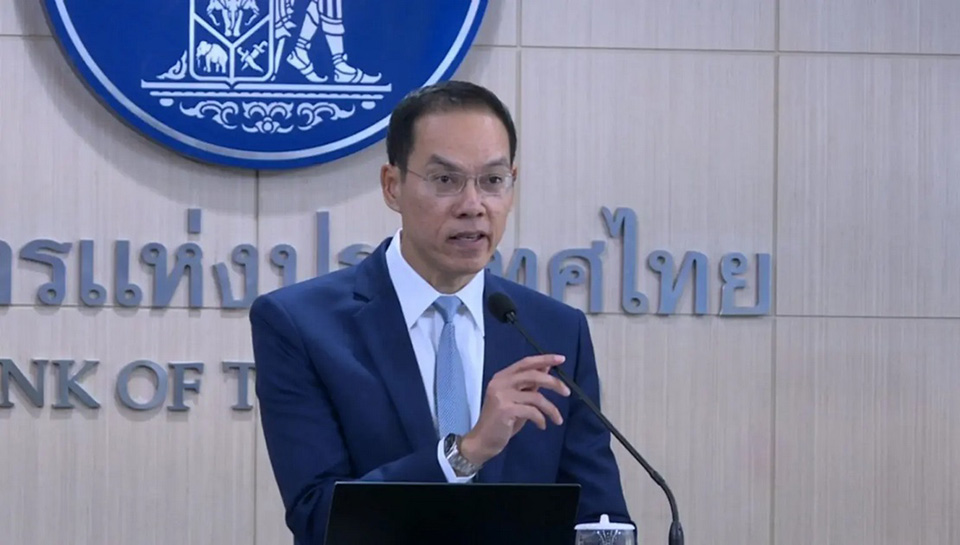
BANGKOK, Thailand – The Monetary Policy Committee (MPC) of Thailand voted 6 to 1 to keep the policy interest rate unchanged at 2.50% per annum on August 21, in line with market expectations. One member of the committee favored a 0.25% rate cut, arguing that a reduction would better align with Thailand’s lower economic growth potential and help alleviate debt burdens for borrowers.
MPC Secretary Mr. Piti Disyatat stated that the Thai economy is expected to grow as projected, driven by the tourism sector and domestic demand. Meanwhile, exports are slowly recovering. Inflation is likely to return to the target range by the end of 2024.
“The majority of the committee believes that the current interest rate remains consistent with the economy’s growth potential and helps maintain economic and financial stability,” Mr. Piti noted. He emphasized the need to monitor the impact of deteriorating loan quality on the broader financial and economic environment.
One dissenting committee member advocated for a 0.25% rate cut, citing structural factors that are increasingly contributing to slower economic growth. The rate cut, they argued, would also provide relief to debtors.
The committee assessed that Thailand’s economic outlook remains close to previous projections, with tourism and domestic demand acting as key growth drivers. However, private consumption is expected to slow after a strong performance in previous periods. Export recovery is gradual, with certain sectors still facing structural challenges and declining competitiveness.
Economic recovery across sectors remains uneven. Workers in manufacturing and self-employed individuals are recovering more slowly compared to other groups. The committee expressed concerns about downside risks to private investment and consumption.
Inflation is expected to decrease more than previously anticipated. Agricultural prices are expected to decline due to favorable weather conditions boosting supply, while core inflation remains low. Structural factors, such as stable energy and fresh food prices, combined with increased competition from imports, are contributing to this trend.
Medium-term inflation expectations remain consistent with the target range, and overall inflation is expected to gradually return to target levels by the end of 2024. However, the committee will closely monitor the government’s cost-of-living support measures.
The committee also observed a slight tightening in financial conditions, with volatility in financial markets driven by economic and monetary policy expectations in major economies. The Thai baht has appreciated against the U.S. dollar, while bond yields have declined, following movements in U.S. government bonds.
Private sector borrowing costs remain stable, while business loans, particularly in the automotive and electronics industries, are contracting due to structural issues. SMEs are facing higher credit risks, leading to a contraction in SME loans. Household loans are slowing, and loan quality is deteriorating, partly due to vulnerable households’ declining repayment capacity amid sluggish income recovery.
The MPC emphasized the importance of monitoring the impact of declining loan quality on borrowing costs and overall loan growth, as well as the implications for economic activity.
To address the challenges facing SMEs, the committee supports measures such as loan guarantee schemes and endorses the Bank of Thailand’s policies to help financial institutions restructure debt for borrowers. This is expected to assist in the household debt deleveraging process.
Mr. Piti concluded that under the framework of maintaining price stability, supporting sustainable economic growth, and ensuring financial system stability, the majority of the committee believes that the current interest rate is appropriate for the economic and inflation outlook and conducive to long-term financial stability.
The committee will continue to monitor the interconnected developments in the economy and financial conditions, adjusting monetary policy as necessary in response to economic and inflation trends.








